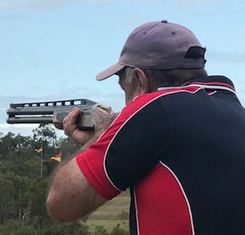
Originally called “Shooting Around The Clock” – American Skeet was invented in 1920 in Andover Massachusetts by Charles Davis and William Hamden Foster.
The word “Skeet” was a winning entry for a competition in 1926 to name the sport with the word Skeet being derived from the Norwegian word Skyte meaning Shoot.
Skeet shooting was developed to simulate bird hunting and as a sport that could be played year round.
SKEET BASICS
Shotgun
Typically Skeet Shooting competitors will use an Over and Under 12 Gauge Shotgun with 26” to 32” Barrels.
Over and Under Shotgun
A shotgun in an over and under configuration is the most commonly used type of shotgun for people shooting clay target disciplines.
There are many different types of Over and Under Shotgun in many different configurations in many, many, many brands.
Over and Under simply means that the barrels are in a vertical configuration with one barrel on top of the other

Semi-Automatic Shotgun
A Semi-Automatic shotgun in most states of Australia is a Category C Firearm and un-attainable to most.
A shotgun of this type has fantastic recoil reduction properties which allows people who might be suffering from injury or who lack the strength or dexterity required to wield a traditional Over and Under Shotgun.
To be licensed for a Category C Shotgun for sporting purposes you must be an Australian Clay Target Association member and must only use the Category C Shotgun on approved Australian Clay Target Association ranges for the purposes of competitive clay target shooting.

Side By Side Shotgun
A Side By Side or SXS is still a popular choice for people shooting clay targets recreationally. Many people have older farm or family guns floating around and decide to give it a try.
Remember that clay target shooting is a simulated winged bird game and SXS are very popular among duck, geese and pigeon shooters.
Not the best choice for competition, but you will see one from time to time

What Is A Clay Target?
A Clay Target is a clay disc of some 110mm in diameter with a 25.5mm thickness that is thrown over a distance of 62-70 yards.
There are slight differences between the clay targets used for American Skeet or International Skeet (sometimes called Olympic Skeet or ISSF)
The clay target is a sustainable representation of a bird whether that be a duck, pigeon, water fowl or even a rabbit which ultimately allows you to simulate the hunting of these types of game, year round.
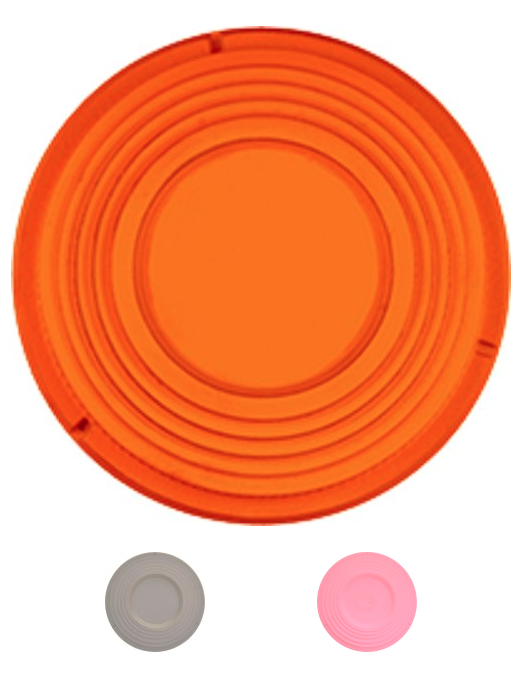
Skeet Layout
A Skeet layout consists of 7 shooting stations in a semicircle with a radius of 19m.
An 8th station is positioned halfway between stations 1 & 7 as shown on the diagram below.

There are two trap houses on a Skeet Layout with clay targets thrown to a point some 4.5m metres high at the crossing point.
- High House – Positioned immediately behind Station 1 which launches from a height of ~3m
- Low House – Positioned immediately behind Station 7 which launches from a height of ~1m
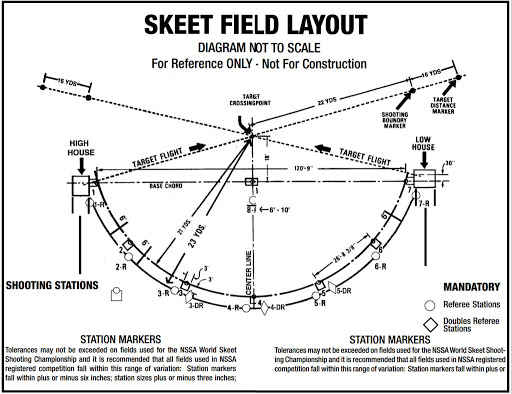
American Skeet Shooting Sequence
Station 1
- Single Low House Target
- Single High House Target
- Double – Target thrown simultaneously from both High and Low Houses
Station 2
- Single Low House Target
- Single High House Target
- Double – Target thrown simultaneously from both High and Low Houses
Station 3
- Single Low House Target
- Single High House Target
Station 4
- Single Low House Target
- Single High House Target
Station 5
- Single Low House Target
- Single High House Target
Station 6
- Single Low House Target
- Single High House Target
- Double – Target thrown simultaneously from both High and Low Houses
Station 7
- Single Low House Target
- Single High House Target
- Double – Target thrown simultaneously from both High and Low Houses
Station 8
- Single Low House Target
- Single High House Target
- Option or Spare for 25th Target from Low House
Olympic Skeet
Olympic Skeet or ISSF Skeet as it is also referred to is a little different to American Skeet in terms of sequence and rules.
Olympic Skeet or ISSF Skeet is contested at the Olympics is considered to have a higher degree of difficulty compared to American Skeet.
The ready position in Olympic Skeet requires the toe of the stock to be touching the body on a line level with the natural drop of the elbow and affixed to the shooters vest. Commonly referred to as the “gun down” position.
To add further difficulty to the discipline, targets are released randomly from zero to three seconds after the target is called by the shooter and the shooters gun must remain in the gun down position until the target is visible.
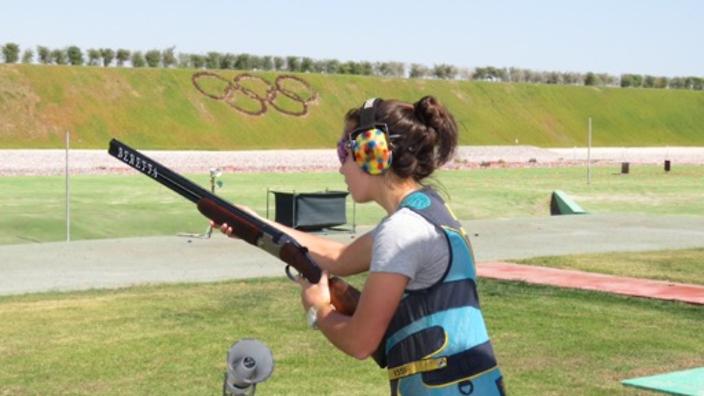
Olympic Skeet Sequence
Station 1
- Single High
- Double
Station 2
- Single High
- Double
Station 3
- Single High
- Double
Station 4
- Single High
- Single Low
- Double (high house first)
- Double (low hose first)
Station 5
- Single Low
- Double
Station 6
- Single Low
- Double
Station 7
- Double
Station 8
- Single High
- Single Low
Where Can I Shoot Skeet?
There are many great Clay Target Clubs in South East Queensland that regularly shoot American Skeet.
Depending on your geographical location check out these great local clubs
Caboolture Clay Target Club
– Actually located at Burpengary East, just off the highway on Uhlmann Road.
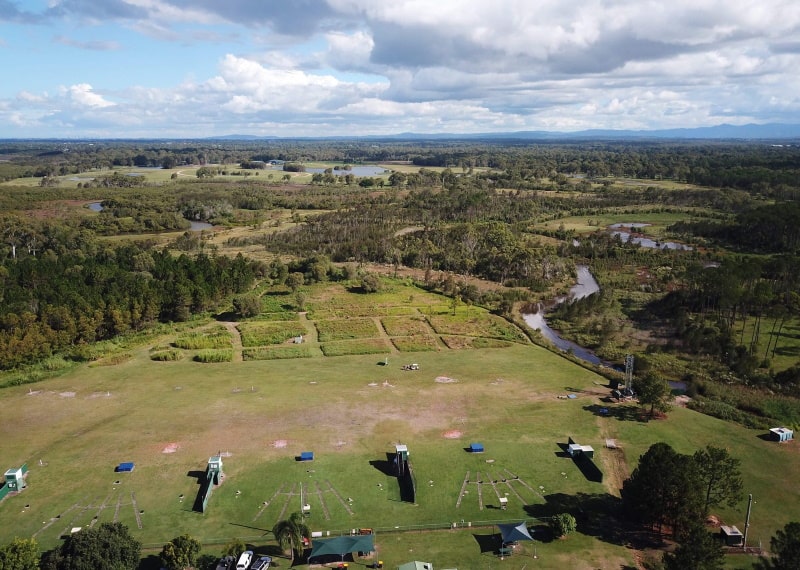
Brisbane Gun Club
– On Mt Petrie Road in Belmont forming part of the Belmont Shooting Complex operated by the Queensland Rifle Association.
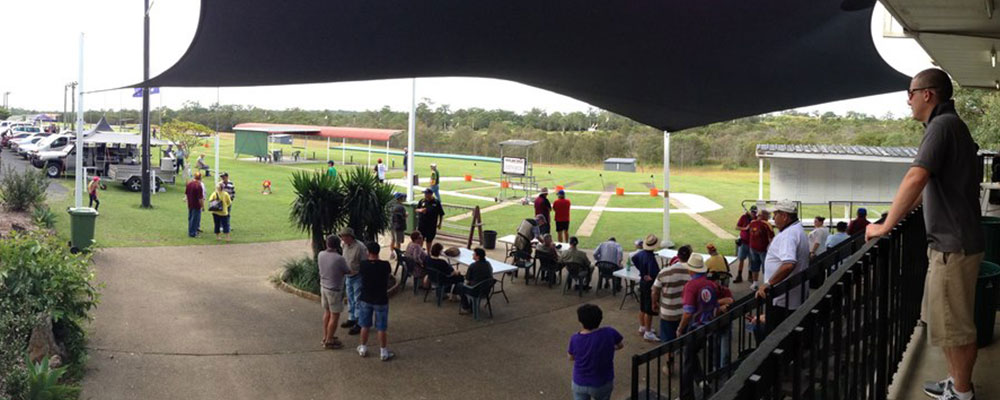
Toowoomba Clay Target Club
– Alongside the new Toowoomba Bypass just off the Warrego Highway on the North East side of Toowoomba City.
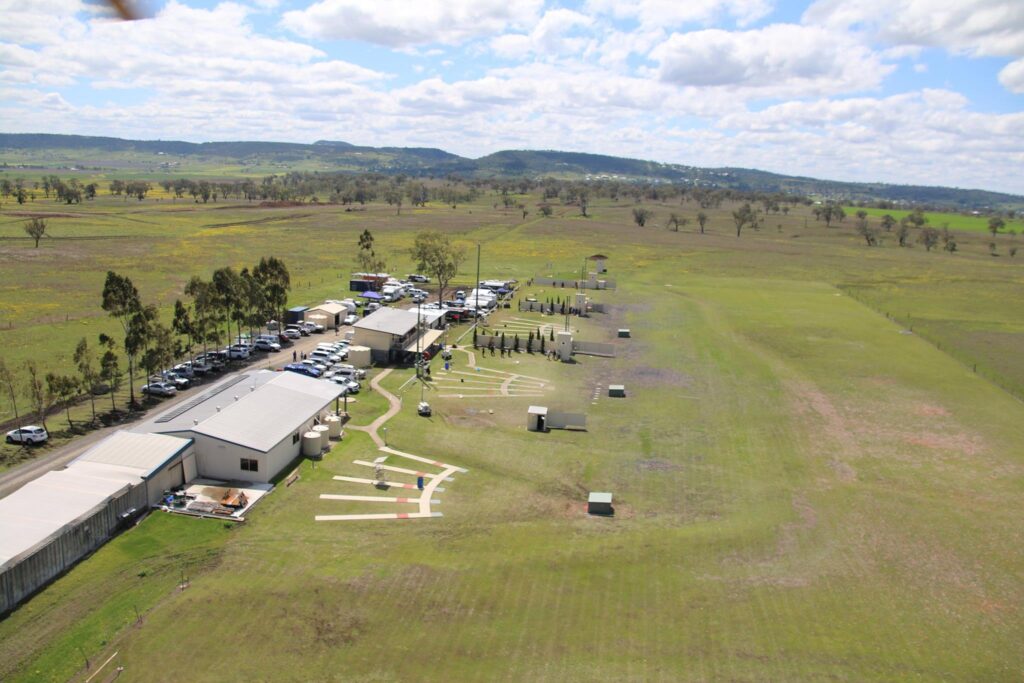
For wider Australian Clay Target Clubs that shoot Skeet, check out the Australian Skeet Shooting Association or ASSA.
Have any questions? We’re here to help. Give the team at On Target Sporting Arms a call on 1300 SHOTGUN and let’s talk Skeet.
Matt Joseph
Staff Writer
ONTARGET BLOG
Welcome to the On Target Blog, here you will find a wide array of articles, reviews and opinion pieces on everything related to the firearms industry here in Australia. We intend to share our combined knowledge to educate, inform and to learn alongside you.
If you have ideas for an article or review that you would like to see or are a writer, wholesaler or distributor that would like to contribute then please contact MJ directly via mj@ontargetsportingarms.com
SUBSCRIBE
RECENT POSTS

We’re Moving To A Much Bigger Storefront
We’ve had 10 great years at Gilston Street in Keperra however the time has come
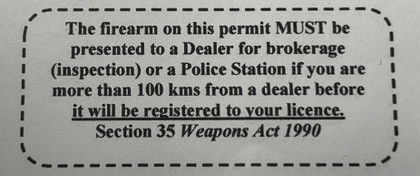
Do I Need A Serial Number For Permit To Acquire PTA?
An all too often asked question. Do I need a serial number for a Permit
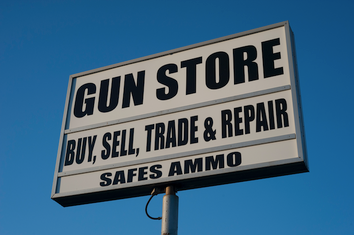
6 Things You Should Never Do At A Gun Shop
This might read a lot like common sense, however you might be surprised how often
